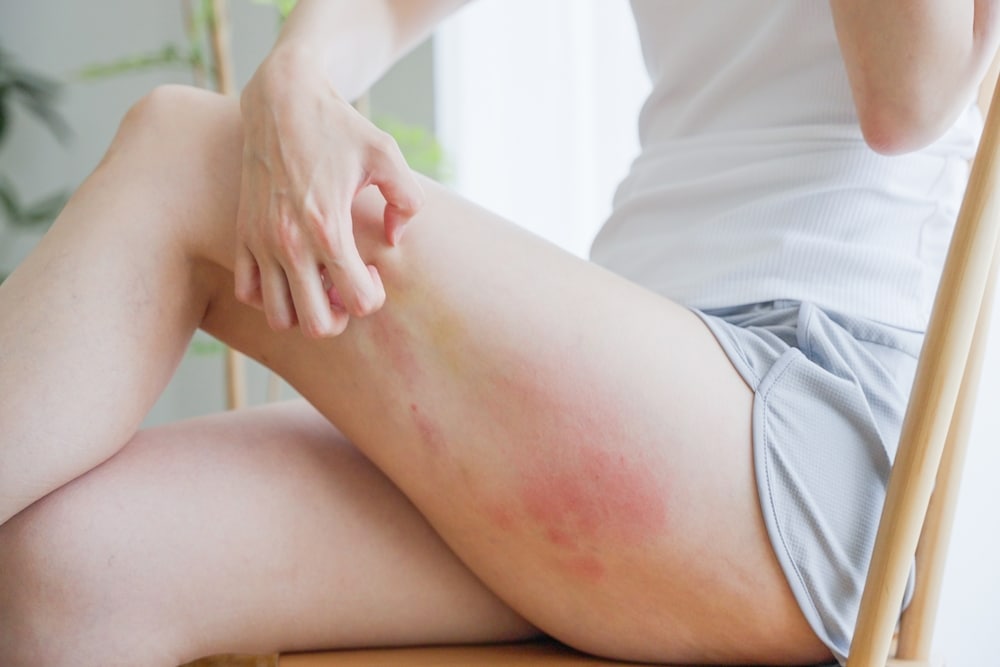
At Harris Dermatology in Naples and Fort Myers, FL, our board-certified dermatologists bring decades of experience diagnosing and treating a wide range of skin conditions. Dr. Brian Harris, Dr. Keith Harris, and Dr. Ross Harris are trained at respected institutions and possess specialized expertise in managing chronic conditions, such as eczema. Using advanced diagnostic tools and individualized treatment strategies, they help patients reduce flare-ups and maintain healthier, more resilient skin.
Common Environmental Triggers
Your surroundings often play a big role in flare-ups. Identifying these triggers can help you avoid unnecessary irritation:
- Soaps and detergents: Harsh ingredients strip the skin of its natural oils, leaving it dry.
- Fragrances and perfumes: Many scented products contain irritants that inflame sensitive skin.
- Extreme temperatures: Heat and sweating or very dry, cold air can worsen symptoms.
- Animal dander: Proteins in pet saliva and dander can trigger allergic reactions in some individuals.
Recognizing environmental factors gives you the opportunity to adjust your daily routines and protect your skin.
Dietary Factors to Watch
Food allergies or sensitivities may contribute to the development of eczema. While not every patient reacts to foods, some common triggers include:
- Dairy products: Milk and cheese are often linked to flare-ups in individuals with sensitive reactions.
- Eggs: A common food allergy in children with eczema.
- Nuts: Tree nuts and peanuts may contribute to inflammation.
- Wheat and gluten: These can cause immune reactions in certain patients.
If you suspect a food trigger, keeping a symptom diary and discussing it with your dermatologist can provide valuable insights.
Stress and Eczema Flare-Ups
Stress does not cause eczema, but it can often exacerbate flare-ups. Increased cortisol levels may weaken the skin barrier, allowing irritation to develop. Stress management techniques, such as yoga, meditation, and adequate sleep, can reduce the frequency of outbreaks and improve overall well-being.
How to Manage Symptoms Effectively
While avoiding triggers is important, managing eczema requires a combination of care strategies. Our dermatologists may recommend treatments such as:
- Topical corticosteroids: Reduce inflammation during flare-ups.
- Antihistamines: Help control itching, especially at night.
- Moisturizers: Lock in hydration and support the skin barrier.
- Phototherapy: Uses controlled light exposure to calm inflammation.
- Immunomodulators: Options such as cyclosporine are available for severe cases.
According to the National Eczema Association, approximately 31.6 million people in the U.S. live with eczema, underscoring the need for comprehensive treatment options. A customized plan can reduce discomfort and limit flare-ups.
Get Relief with Harris Dermatology
Managing eczema starts with understanding your triggers and receiving expert care. Call 239-596-1848 in Naples or 239-936-3344 in Fort Myers to schedule an appointment today and take control of your eczema symptoms.

